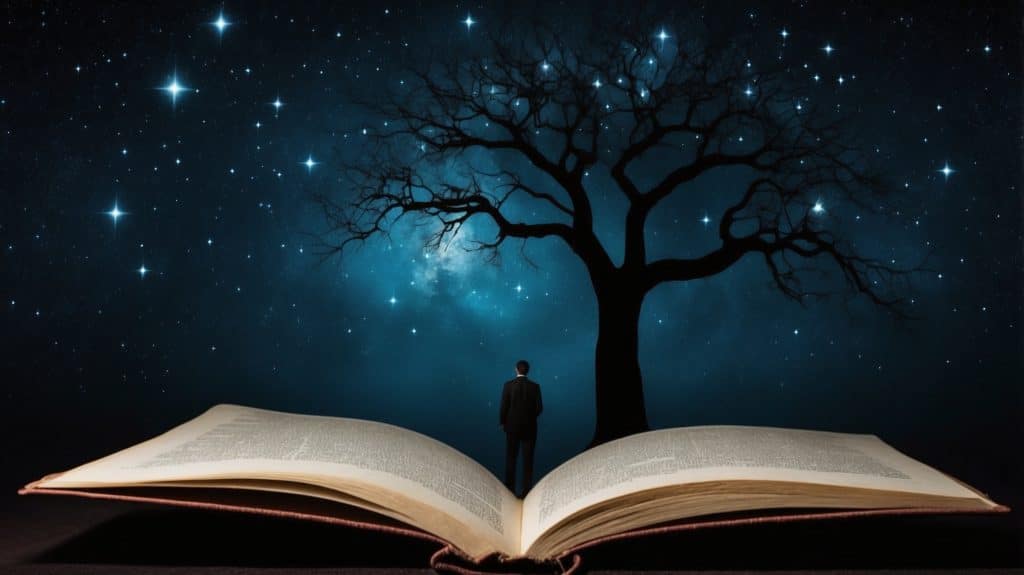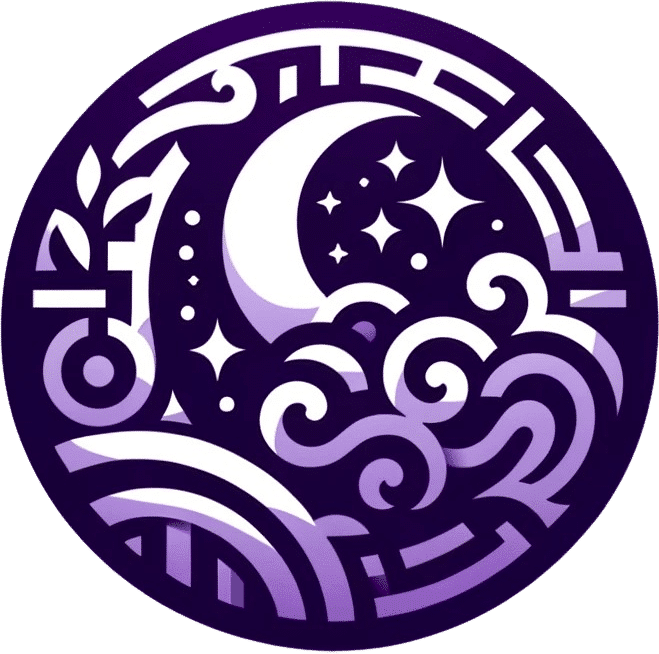Dreams have fascinated humanity for as long as we’ve been able to sleep. They are the enigmatic tapestries woven by our subconscious, filled with symbols, scenarios, and emotions that often leave us scratching our heads in the morning. But what if you could decode these nightly mysteries? What if understanding your dreams could unlock hidden truths about yourself? This is where the realms of Dream Dictionary and Dream Interpretation come into play.
The Ancient Roots and Modern Evolution of Dream Dictionaries

Dream Dictionaries have been around for centuries, serving as the gateway for those curious about what their dreams might mean. The idea that dreams could be decoded into specific meanings isn’t new. Ancient civilizations like the Egyptians and Babylonians believed that dreams were messages from the gods, filled with symbolic language meant to guide, warn, or bless the dreamer. These early societies kept records of these symbols, compiling them into what we might consider the first Dream Dictionaries.
For example, the Egyptians believed that dreaming of a crocodile symbolized treachery, while the Babylonians might have interpreted it as a sign of an impending enemy. These ancient beliefs laid the groundwork for the modern Dream Dictionary, which attempts to offer a universal interpretation of dream symbols.
Take the common dream of teeth falling out. In most Dream Dictionaries, this symbol is interpreted as a sign of anxiety, fear of aging, or concern over losing something valuable. The widespread nature of these interpretations is what makes Dream Dictionaries appealing—they offer a quick, often reassuring explanation for the strange and unsettling images that visit us at night.
However, this approach has its limitations. Dreams are deeply personal experiences, and while Dream Dictionaries provide a useful starting point, they can only offer generalized meanings that may or may not resonate with the dreamer. The interpretation of a dream about teeth falling out could range from a fear of losing control to a sign of personal transformation, depending on the individual and their life circumstances.
The Personalized Power of Dream Interpretation
This is where Dream Interpretation steps in, offering a more nuanced and personalized approach to understanding dreams. Unlike the one-size-fits-all nature of Dream Dictionaries, Dream Interpretation delves into the unique context of your life, emotions, and subconscious mind.
Consider the symbol of water. In a Dream Dictionary, water is commonly associated with emotions, the subconscious mind, or purification. But what does water mean to you personally? Is it a source of joy, like swimming in the ocean during a carefree summer? Or does it evoke anxiety, perhaps due to a near-drowning experience in your past?
Dream Interpretation encourages you to look beyond the surface of these symbols and explore their deeper, more personal meanings. It asks you to reflect on your own life experiences and consider how they might be influencing the imagery in your dreams. This approach aligns with the theories of Carl Jung, who believed that dreams are a reflection of our inner world and that their symbols are deeply personal.
For example, dreaming of flying might generally represent freedom or ambition, according to a Dream Dictionary. However, if you have a fear of heights, flying in a dream might symbolize a fear of losing control or being overwhelmed by challenges. In this way, Dream Interpretation provides a more tailored understanding of your dreams, allowing you to uncover the specific messages your subconscious is trying to convey.
Bridging the Gap: Combining Dream Dictionaries with Personal Interpretation
While Dream Dictionaries offer a useful starting point, they should be used in conjunction with personal reflection and interpretation. The key to unlocking the true meaning of your dreams lies in combining these two approaches.
One effective method for doing this is keeping a dream journal. By recording your dreams as soon as you wake up, you can capture the vivid details that are often lost as the day goes on. Note the symbols, emotions, settings, and even the colors and sounds that stood out to you in the dream. This practice not only helps you remember your dreams more clearly but also allows you to identify patterns and recurring themes over time.
Once you’ve recorded your dream, use a Dream Dictionary to look up the symbols that appeared. This can give you a general sense of what these symbols might represent. However, don’t stop there. Reflect on your personal associations with these symbols. How did you feel during the dream? What’s going on in your life that could be influencing your subconscious?
For example, if you dream of a door, a Dream Dictionary might tell you that it represents opportunities or barriers. But think about your own experiences with doors—are you standing on the threshold of a new chapter in your life? Are you facing an obstacle that feels insurmountable? Or do you feel stuck, as if a door in your life is closed and locked? By asking these questions, you can gain deeper insights into your dreams and what they mean for you personally.
The Importance of Symbols and Their Personal Meanings
The symbols in your dreams are not just random images; they are reflections of your inner world, shaped by your experiences, emotions, and subconscious mind. Understanding the personal significance of these symbols is crucial for unlocking the true meaning of your dreams.
Consider the symbol of animals in dreams. Dreaming of a dog might generally represent loyalty or friendship, according to a Dream Dictionary. However, if you had a traumatic experience with a dog in the past, this symbol might evoke fear or anxiety in your dream. On the other hand, if you grew up with a beloved family dog, the symbol might represent comfort and security.
Similarly, more abstract symbols like mazes or labyrinths can vary in meaning depending on your personal experiences. A Dream Dictionary might suggest that a maze represents confusion or feeling lost. But how did you feel in the dream—were you frustrated, or were you excited by the challenge? Did the maze remind you of a particular situation in your life, like trying to navigate a complicated relationship or career decision? These personal insights are what turn a simple dream symbol into a powerful tool for self-understanding.
The Role of Cultural and Spiritual Beliefs in Dream Interpretation

Cultural and spiritual beliefs also play a significant role in how we interpret our dreams. For instance, in some cultures, dreaming of certain animals or natural elements might be seen as an omen or a message from the spirit world. In others, dreams are viewed as a way for the ancestors to communicate with the living.
These cultural and spiritual perspectives add another layer of complexity to dream interpretation, as they influence the way we understand and relate to the symbols in our dreams. For example, in some Indigenous cultures, dreaming of an eagle might be seen as a powerful sign of spiritual guidance or protection, while in Western cultures, it might simply be interpreted as a symbol of freedom or ambition.
Understanding your own cultural and spiritual background can help you interpret your dreams in a way that is meaningful and relevant to you. It can also provide a deeper connection to your heritage and the beliefs that have shaped your worldview.
Conclusion: The Journey to Self-Discovery Through Dreams
Dreams are a window into our subconscious, offering a glimpse into our innermost thoughts, fears, and desires. By understanding the difference between Dream Dictionaries and Dream Interpretation, you can unlock the true power of your dreams and gain deeper insights into yourself.
While Dream Dictionaries provide a helpful starting point, the real magic happens when you combine this knowledge with personal reflection and interpretation. By keeping a dream journal, exploring the personal significance of dream symbols, and considering your cultural and spiritual beliefs, you can begin to uncover the hidden messages in your dreams and use them as a tool for self-discovery.
So the next time you wake up from a puzzling dream, don’t just look up the symbols in a Dream Dictionary—take the time to reflect on what these symbols mean to you personally. In doing so, you’ll not only gain a deeper understanding of your dreams but also of yourself and the world around you.
For more insights into dream symbols and their meanings, and to further explore the world of dreams, visit DukeOfDreams.com. And don’t forget to subscribe to the Duke of Dreams YouTube channel for more dream analysis and interpretations!
